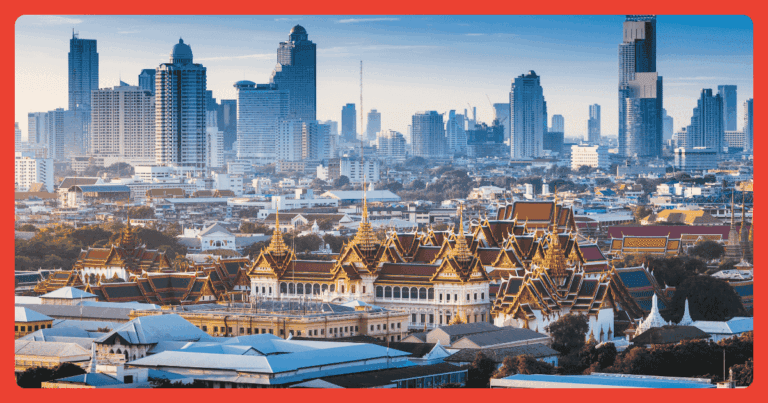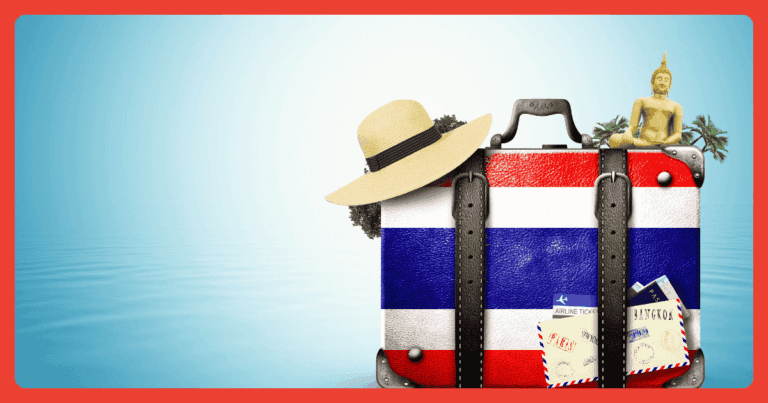
Table of Contents
Driving in Thailand offers an incredible sense of freedom, whether you’re an expat navigating Bangkok or a tourist exploring the islands on a scooter. But this freedom comes with a serious risk: Thailand’s roads are consistently ranked among the most dangerous in the world. For this reason, proper vehicle insurance is not a luxury, it is an absolute necessity.
A simple accident can lead to devastating financial and medical consequences. This guide explains everything foreigners need to know about car and motorbike insurance in Thailand in 2025: the mandatory requirements, the different coverage types, and how to ensure you are truly protected.
1. The Reality of Thai Roads: Why Insurance is Non-Negotiable
Every vehicle registered in Thailand is legally required to have basic mandatory insurance called Por Ror Bor (พรบ). This is also known as Compulsory Motor Insurance or Compulsory Third-Party Liability (CTPL).
- You must have it to pay your annual vehicle tax and be legally on the road.
- It provides very minimal coverage for medical expenses in an accident (e.g., up to 80,000 THB) and a payout for death/disability.
💡 Think of it this way: `Por Ror Bor` is the ticket that lets your vehicle on the road. It is NOT the safety net that protects you from the huge costs of a real accident. A single night in a private hospital can cost more than the entire `Por Ror Bor` medical payout.
For any real financial protection, you need voluntary private insurance.

Health, Travel & Vehicle Insurance
Compare top service providers from Thailand
Get a Quote >
2. Decoding Thai Car Insurance: The “Class” System Explained
Private car insurance in Thailand is categorized into “Types” or “Classes.” Choosing the right one depends on your car’s value and your budget.
| Insurance Class | Covers YOUR Car | Covers the OTHER Party’s Car & Medical | Covers Theft & Fire | Best For |
|---|---|---|---|---|
| Type 1 (First Class) | ✅ Yes (Full Coverage) | ✅ Yes | ✅ Yes | New or high-value cars; anyone wanting total peace of mind. |
| Type 2+ | ✅ Yes (Only in a car-on-car collision) | ✅ Yes | ✅ Yes | Cars a few years old; budget-conscious but want own-damage cover. |
| Type 3+ | ❌ No | ✅ Yes | ❌ No | Older cars where third-party damage is the main concern. |
| Type 3 | ❌ No | ✅ Yes (Liability Only) | ❌ No | The absolute cheapest legal minimum above Por Ror Bor. |
For any expat with a car they value, Type 1 insurance is strongly recommended.

3. The Biggest Risk: Motorbike Insurance
Motorbikes and scooters are involved in the vast majority of tourist and expat accidents. The insurance situation here is even more critical.
The Tourist Rental Trap
When you rent a scooter from a small shop on a Thai island, the “insurance” included is almost always just the basic, mandatory `Por Ror Bor`. This will not cover the cost of repairing the bike, damage to another vehicle, or your own significant medical bills. You are personally liable for all of it.
The Travel Insurance Pitfall
This is a life-altering mistake many travelers make. Your standard travel insurance policy will almost certainly VOID your coverage for a motorbike accident if:
- You do not have a valid, full motorcycle license from your home country.
- You do not have a valid International Driving Permit (IDP).
- You were not wearing a helmet at the time of the accident.
Read your policy’s fine print. Most people renting scooters are unknowingly riding completely uninsured from a medical perspective.
For expats who own a motorbike, comprehensive “Type 1” motorbike insurance is available and highly recommended. It covers theft, damage, and third-party liability.
4. A Practical Checklist for Tourists Renting a Vehicle
Before you hand over your passport and ride away, protect yourself with this checklist:
- ✅ Check for `Por Ror Bor` & Tax: Look at the sticker on the vehicle. Is the annual tax paid and up to date? This confirms the mandatory insurance is active.
- ✅ Ask About Voluntary Insurance: Ask the owner, “Do you have `pra-gan` (insurance) Type 1?” Most will say no, but it’s worth asking. If they do, ask to see the policy.
- ✅ Photograph Everything: Take a detailed video and photos of the vehicle from all angles. Document every existing scratch and dent so you cannot be blamed for it later.
- ✅ Check Your License: Do you have a valid motorbike license from home and an IDP? If not, you are driving illegally and are not covered by most travel insurance.
- ✅ Always Wear a Helmet: It’s the law, it’s common sense, and it’s an insurance requirement.
5. How to Compare and Buy the Right Policy in English
Navigating the Thai insurance market can be challenging due to the language barrier and the sheer number of providers. For expats and long-stay tourists, the easiest and most transparent way to buy is through a reputable online insurance broker.
These platforms allow you to compare plans and prices in a clear, understandable format.
👉 For the Thai market, we recommend using a platform like CheckDi. They are a leading broker that makes the process simple:
- Compare Top Thai Insurers: See quotes for car and motorbike insurance from providers like Viriyah, Dhipaya, and AXA all in one place.
- Clear English Policies: Understand exactly what is covered without a language barrier.
- Buy Online Instantly: You can choose, pay for, and receive your policy online in minutes.
- Dedicated Motorbike Section: They make it easy to find comprehensive insurance for your scooter.
Frequently Asked Questions (FAQs)
What happens if I have an accident without proper insurance?
You are personally and financially liable for ALL costs. This includes repairs to your vehicle, repairs to the other party’s vehicle, all of your own medical bills, and all of the other party’s medical bills. It can be financially devastating.
Is my home country’s car insurance valid in Thailand?
No. You must have Thai-issued insurance to be legal on Thai roads.
Do I need a Thai driver’s license to get insurance?
To purchase annual insurance for a vehicle you own, you will need to show that you are a legal driver. This typically means providing a Thai driver’s license or, in some cases, a valid license from your home country paired with an International Driving Permit (IDP).
Conclusion: The Smartest Investment You Can Make
In Thailand, the question isn’t “Can I afford insurance?” but rather, “Can I afford not to have it?” Given the high risks on the road, a comprehensive insurance policy is one of the smartest and most important investments you can make for your safety, your health, and your financial peace of mind.
Whether you’re a tourist renting a scooter for a week or an expat driving a car for years, make sure you are fully covered before you turn the key.

Health, Travel & Vehicle Insurance
Compare top service providers from Thailand
Get a Quote >
Share this post:
This post was last updated September 2025.







